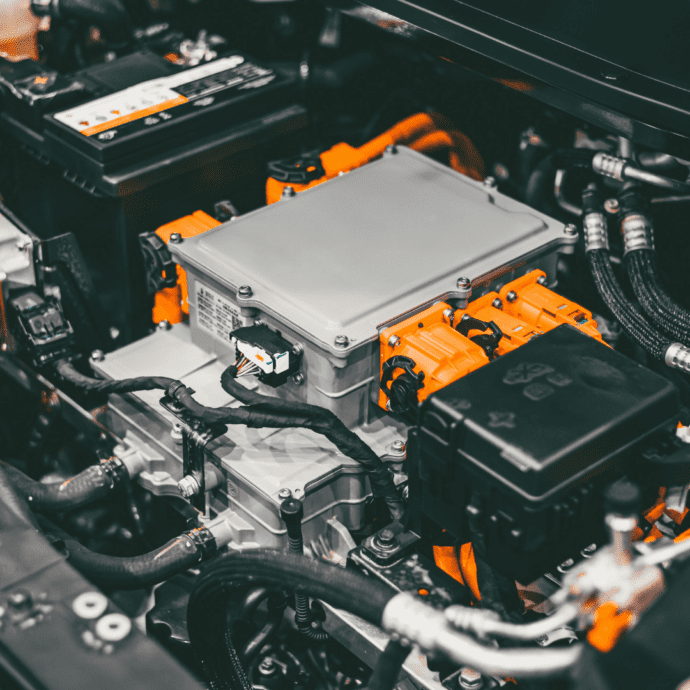
If the cost of a brand-new car might not be in your budget right now, that doesn’t mean you’re completely out of the electrical vehicle game. In this installment of our EV series, we take a look at the pros and cons of buying a used EV and what to know before you go shopping.
Consider your needs first.
Electric vehicles are a great option for the environment, but take a minute to consider if they are the right choice for you. Factors to consider include:
- How many miles do you drive daily or weekly?
- Can you install a charging system at your home?
- If not, do you have access to charging near your home, work, or areas you frequent—like the grocery store or gym?
- Can you spare 20 minutes to charge when needed, or are you always on the go?
A used EV is probably right for you if you have a reasonable commute or only need a car for shorter trips under 150 miles, an idea of how and where you’ll be charging, and a little bit of patience to wait when needed.
Find the incentives available in your area.
Federal electric vehicle tax credits are available for all pre-owned all-electric, plug-in hybrid, and fuel cell electric vehicles. You can get a tax credit of 30% of the sale price up to $4,000 for a used electric car under $25,000, depending on income and other limits. You must purchase the vehicle from a dealership and be at least two model years old to qualify. Other restrictions apply. For example, you can only qualify for one credit every three years and a vehicle can only qualify once. To learn more, visit the IRS Clean Vehicle Tax Credit page.
Through July 31, 2025, Washington residents who buy used electric vehicles can qualify for and pay no tax on cars priced up to $16,000.
Do your homework.
Take a minute to educate yourself on the difference between an EV and an internal combustion engine. Understanding how important the battery is to an EV can help you get the best deal possible—especially when buying a used EV. Research your preferred make and models, looking for any years that may have had more issues than others.
Check the battery health.
Batteries can degrade over time, meaning that their performance and range can decrease. Replacement batteries are expensive, so consider not only your upfront costs but also future costs.
A dealership can provide you with a battery health report. Or if you’re buying from a third party, you may want to have a mechanic that specializes in EVs run some diagnostics to be on the safe side. When in doubt, charge the EV to 100% and compare the current driving range to the vehicle’s original specifications. Also, don’t be afraid to ask questions about how and where the car was used. Other factors that affect battery life include frequency and type of charging and the type of climate it was exposed to.
Higher mileage EVs are more likely to have had a battery replaced. If a battery was replaced by the previous owner, review all the paperwork on the replacement battery including where, when, and why it was replaced.
Go for a real test drive.
A quick drive around the block is great for getting a feel for a car. But to really tell if a used EV is going to pass the test of time, you’ll need to go for an extended drive.
Start with a full charge and head out for the afternoon, testing out its performance through different types of road conditions such as highway, city streets, and stop-and-go traffic. Run the various accessories in the vehicle like the AC and heater to see if they affect battery range as well. Note if the vehicle charge is dropping faster than you would expect, and at the end of the drive, compare the remaining charge to what the vehicle’s performance specifications should be.
Research the battery warranty
Extended warranty coverage for batteries varies by automaker but many vehicles may still be under warranty with some exceptions. Either 100,000 miles or 8 years is the most common terms of coverage after sale, but don’t assume that any warranties are transferable so it’s a good idea to investigate the terms and conditions. Always look for the warranty specifics for the exact year and model of the vehicle you’re interested in purchasing by using the VIN number. When in doubt, contact the automaker’s customer service line for information.
Inquire about vehicle history.
Getting the most complete history of the car is important when you’re purchasing any used vehicle. Not all drivers are the most diligent with upkeep and maintenance or have been able to avoid bumps, scrapes, or worse while on the road. Ask to review service records to see if routine maintenance like tire rotations, fluid top-ups, wiper-blade replacements and such have been completed regularly. Research whether any items on the vehicle have been recalled and when they were replaced or updated. It’s always a good idea to run a complete report on the vehicle using the VIN number to verify that it is accident free and had only one owner—if that is a selling point by the seller.
Make sure all accessories are present.
Some vehicles need extra charging accessories or adapters to use some universal charging systems. Make sure that you’ll have everything you’ll need to drive away with your new-to-you vehicle without having to spend extra on items that should have come with it standard.
We hope this helps you make an informed decision about whether a used EV is the right purchase for you. For more information about electric vehicles, visit our EV page on the City Light website!



